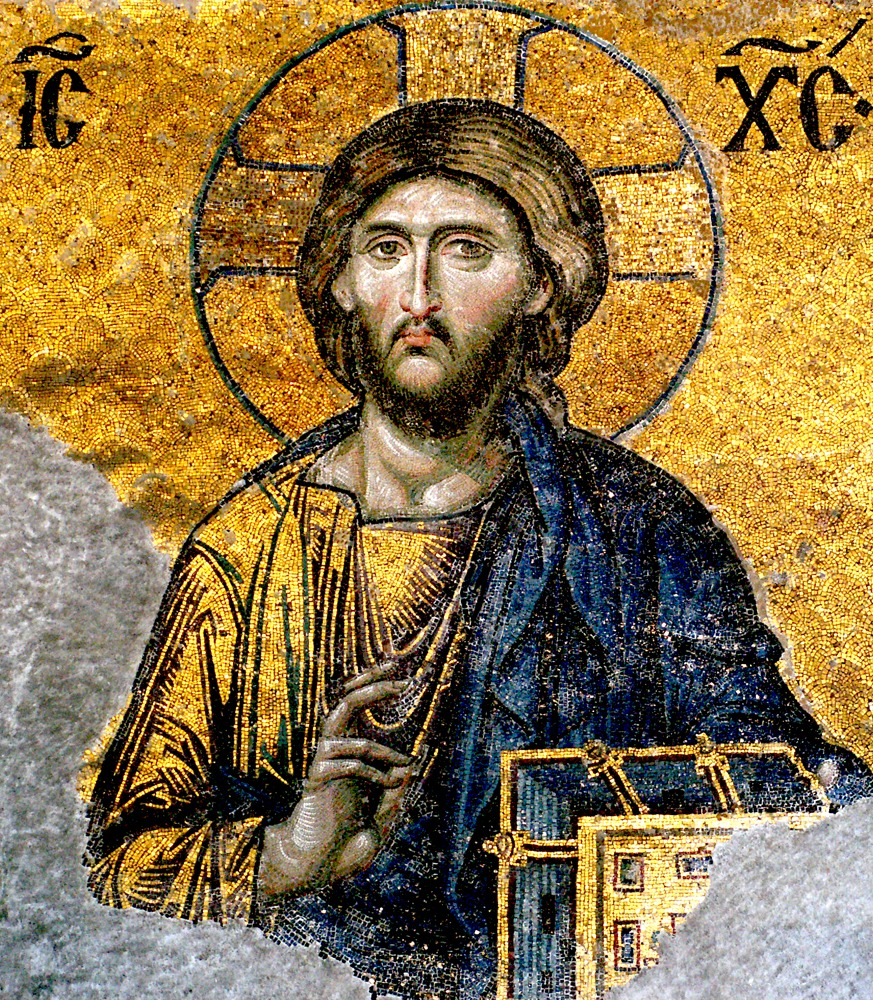When we hear the term “the Good Shepherd,” many of us immediately think of Psalm 23, “The Lord is my Shepherd, I shall not want…” But there are actually several messianic passages about “the Shepherd” in the Old Testament, and we can learn a lot about Jesus’ mission and message by what these passages say about him. Let’s look at a few:
But you, Bethlehem Ephrathah, though you are small among the clans of Judah, out of you will come for me one who will be ruler over Israel, whose origins are from of old, from ancient times.” … He will stand and shepherd his flock in the strength of the LORD, in the majesty of the name of the LORD his God. And they will live securely, for then his greatness will reach to the ends of the earth. And He will be their peace. (Micah 5:2, 4-5)
We can see many truths about Jesus as our shepherd even in this passage. It says that he will be born in Bethlehem, like his ancestor David, who was a shepherd. His origins are from many ages ago, suggesting that he was co-eternal with his Father. It says he would have a kingdom that would expand to the ends of the world, and that he himself would be the source of the peace of his people. What powerful words!
Another passage about the shepherd describes his suffering too. Jesus quotes Zechariah 13 which says,
“Awake, O sword, against my shepherd, and against the man, my Associate (one who is close to me),” declares the LORD of hosts. “Strike the shepherd that the sheep may be scattered; and I will turn my hand against the little ones. (Zech. 13:7)
This passage suggests that the messiah would have an especially close relationship with God, but yet God would allow him to be attacked and harmed by others. Jesus quotes this passage to tell his disciples that he expects to suffer, and that they as his “sheep” would be scattered: they would abandon him at his death (Matt 26:31, Mark 14:27).
Another passage where the shepherd is mentioned is in Isaiah 40. There, we hear about a person who would come before him who would be a voice crying out, “In the wilderness, prepare the way of the Lord.” We recognize this as the passage referring to John the Baptist (Jn 1:23). The rest of the passage talks about the shepherd who is coming after him:
A voice of one calling: “In the desert prepare the way for the LORD; make straight in the wilderness a highway for our God. …You who bring good tidings to Jerusalem, lift up your voice with a shout, lift it up, do not be afraid; say to the towns of Judah, “Here is your God!” See, the Sovereign LORD comes with power, and his arm rules for him. See, His reward is with him, and His recompense accompanies Him. He tends His flock like a shepherd: He gathers the lambs in his arms and carries them close to his heart; He gently leads those that have young. (Isaiah 40:3, 9-11)
 Here, the amazing thing is that the shepherd who comes after the one who calls out is actually the Lord God himself! If this passage is about John the Baptist and Jesus, the implications are quite clear — the Messiah that John was proclaiming would be God incarnate.
Here, the amazing thing is that the shepherd who comes after the one who calls out is actually the Lord God himself! If this passage is about John the Baptist and Jesus, the implications are quite clear — the Messiah that John was proclaiming would be God incarnate.
Many messianic prophecies describe the coming of a great king, but do not explicitly say that he would be divine. This one, however, seems to imply that the LORD himself will come as the shepherd.
One of the most important passages about the Good Shepherd is in Ezekiel 34. It also has some very powerful things to say about the Shepherd:
For thus says the Lord GOD, “Behold, I Myself will search for My sheep and seek them out. As a shepherd cares for his herd in the day when he is among his scattered sheep, so I will care for My sheep and will deliver them from all the places to which they were scattered on a cloudy and gloomy day.” “I will feed My flock and I will lead them to rest,” declares the Lord GOD. “I will seek the lost, bring back the scattered, bind up the broken and strengthen the sick; but the fat and the strong I will destroy. I will feed them with judgment. “As for you, My flock, thus says the Lord GOD, ‘Behold, I will judge between one sheep and another, between the rams and the male goats. …“ (Ezek. 34:11-12,15-17)
This passage contains several rich things that are in the background of Jesus’ statements about himself. We can hear the background of Jesus’ parable about the shepherd who leaves the ninety-nine to look for the one lost sheep (Luke 15:4-7), or when he said he will judge between the sheep and the goats when he returns (Matt. 25:31-34). We even find a reference to this passage in his words to Zacchaeus: “…the Son of Man came to seek and to save what was lost” (Luke 19:9-10).
The Ezekiel passage clearly says it would be God himself who would come to seek out his lost sheep, and Jesus repeatedly says he is the fulfillment of these words. Through this, his listeners would have heard his very bold claim that not only is he the Messiah, he is God incarnate, coming to earth to rescue his people.
~~~~
Photos: Patrick Schneider on Unsplash, FOYN on Unsplash



